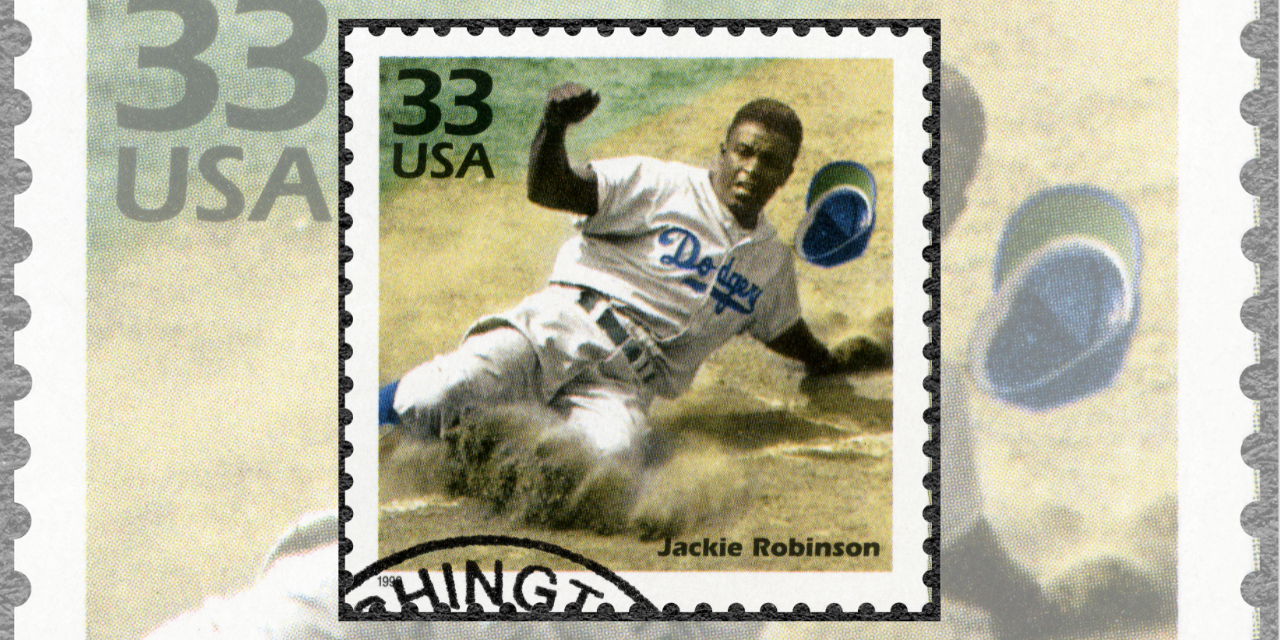Jackie Robinson was waiting for the call when it came.
Seventy-seven years ago today – April 10, 1947 – the former UCLA star football and baseball player was resting inside Room 1169 of New York City’s McAlpin Hotel. The call would change his life and professional sports forever.
The Brooklyn Dodgers’ Branch Rickey was on the line, summoning the star player to come across the East River to team headquarters on Montague Street to sign a contract with the team, setting the stage for the debut of the first black baseball player in the Major Leagues.
Rickey and Robinson had previously met there back on August 28, 1945, at which time the Dodgers’ general manager had pressed the rising star if he had what it took to withstand the controversy and abuse that would surely come with his signing.
Branch Rickey had read to Jackie Robinson about Jesus’ Sermon on the Mount from a book titled, Life of Christ.
Rickey put the book down, and looked eye-to-eye with his new player who would soon integrate the game.
“We can’t fight our way through this, Jackie,” he began. “We’ve got no army. There’s virtually nobody on our side. No owners. No umpires. Very few newspapermen. And I’m afraid many fans will be hostile. We’ll be in a tough position. We can win only if we convince the world that I’m doing this because you are a great ball player and a fine gentleman.”
Jackie Robinson was all of that, first signing a minor league contract for the 1946 season with the team’s Triple A affiliate, the Montreal Royals. He would officially sign with the major league club on April 10, 1947 – and take the field five days later.
Today, the integration of baseball seems like a no-brainer to everyone of a certain age. Why anyone would exclude players because of skin pigmentation is nonsensical. It’s offensive. It’s inhumane. It’s outrageous.
One day, the same will be said of abortion.
How anyone can deny life to the living and murder children in the womb strikes many of us as similarly abhorrent and abominable.
Skin pigmentation is approximately 1.5 millimeters deep. A preborn child in the womb is mere inches away from the outside world – and yet held prisoner and tortured by the likes of Planned Parenthood.
Consternation over the political ramifications of banning abortion is escalating, but Jackie Robinson’s steeliness and Branch Rickey’s principled leadership are a good model on how to engage, endure – and end – the assault on the dignity of life.
Branch Rickey didn’t shy away from the reality of the situation. He knew the climate. He also didn’t pretend to be able to tamp down the tone of the critics – at least not immediately. That’s why he signed Jackie to the minor league contract, giving him time to prepare.
The radical abortionists are dug in and determined. They trade in lies and sow fear. We’re unlikely to assuage their obsession – but we can continue to champion life and model what it means to live in a post-Roe America.
Many of the Americans who objected to the integration of baseball eventually saw the error of their position. They realized integration improved the game – and their teams. They came around – and most began rooting for players like Jackie, Roy Campanella, Satchel Paige, Monte Irvin and later, Willie Mays.
Likewise, any opportunity we can find to highlight birthmothers who choose life and adoptive families who welcome children into their homes will help destigmatize and normalize the pro-life position.
Jackie Robinson ultimately succeeded because he was talented – but also because he was poised and principled. A man of deep Christian conviction, Robinson would kneel at his bedside to pray each night before going to sleep. “I had a lot of faith in God,” he said. “There’s nothing like faith in God to help a fellow who gets booted around once in a while.”
Pro-life advocates can expect to be booed and booted around – but it is never wrong to do the right thing. We can take the criticism. We can endure the hate. Like racism, abortion is an evil that must be addressed and conquered – and like Jackie Robinson, we can accomplish it by keeping our eye on the ball till the end.
Image from Shutterstock.






